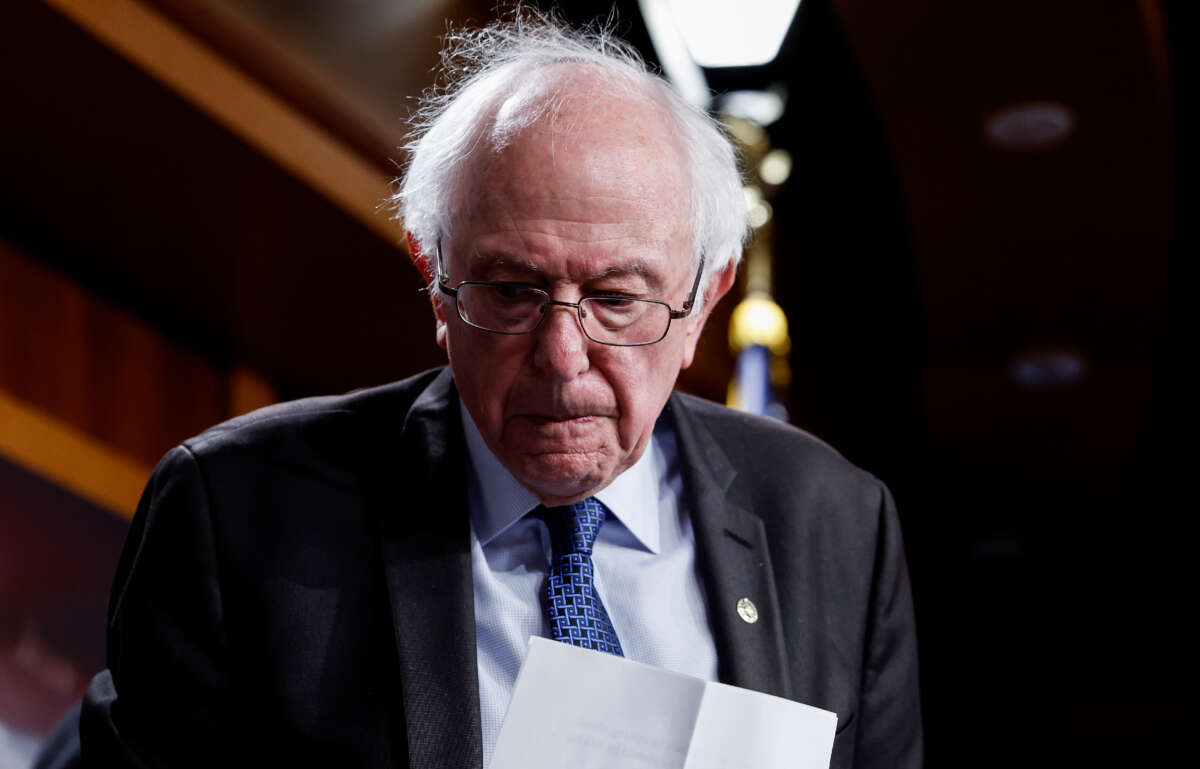Sen. Bernie Sanders (I-Vermont) introduced a bill on Thursday that takes a crack at ending a crisis that has long plagued the U.S. education system: extremely low teacher pay.
Sanders, the chair of the Senate Health, Education, Labor and Pensions Committee, has proposed setting a nationwide minimum wage for teachers at $60,000 a year. This would raise the salaries of 43 percent of public school teachers in the country, according to a press release on the bill, affecting over a million school teachers.
The senator says that the bill is necessary to fix the “international embarrassment” of the U.S. having among the worst pay for teachers across wealthy countries.
“It is simply unacceptable that, in the richest country in the history of the world, many teachers are having to work two or three extra jobs just to make ends meet,” Sanders said in a statement.
“The situation has become so absurd that the top 15 hedge fund managers on Wall Street make more money in a single year than every kindergarten teacher in America combined — over 120,000 teachers. Wages for public school teachers are so low that in 36 states, the average public school teacher with a family of four qualifies for food stamps, public housing and other government assistance programs,” he continued, emphasizing that the U.S.’s attitude toward education must “radically change.”
On top of raising teacher salaries, the Pay Teachers Act would increase federal support for public schools, tripling assistance for schools with large numbers of low-income students and upping funding for rural schools and the Bureau of Indian Education.
The bill has been cosponsored by seven senators, including Elizabeth Warren (D-Massachusetts) and Ed Markey (D-Massachusetts). It also has the support of more than 50 major education groups and unions, including the two largest teachers unions in the U.S., the National Education Association (NEA) and the American Federation of Teachers (AFT).
“America’s schools are facing a five-alarm crisis because of the educator shortages that have been decades in the making and exacerbated by the pandemic,” said NEA President Becky Pringle. “Together, we must recruit large numbers of diverse educators into the profession and retain qualified and experienced educators in our schools to support our students in learning recovery and thriving in today’s world. To do that, we must have competitive career-based pay to recruit and retain educators.”
The field of education is currently in crisis. The gap between teacher pay and that of other college graduates has hit a record high. According to a report by the Economic Policy Institute (EPI), teachers were paid on average 24 percent less than comparable college graduates were paid in 2021, a record high gap since the group began examining such data.
Historic low pay for teachers has contributed to an over decade-long teacher shortage, which has been exacerbated by the pandemic. According to a survey by the National Center for Education Statistics, 53 percent of public schools felt they were understaffed for the 2022-2023 school year.
Understaffing, caused in large part by underpay, is eroding the state of the profession overall. A recent study found that teacher pay, working conditions, decreasing union influence and increases in school shootings have caused the profession to be at its lowest point in at least half a century, judging by the metrics of education funding.
On top of worsening working conditions, teachers are facing an increase in attacks and harassment from astroturfed right-wing “parent” movements orchestrated by moneyed far right groups seeking to erode and destroy the public school system in the U.S.
Teachers have risen up in response to low pay and poor conditions across the country, with teacher strikes increasing in recent years, often garnering good outcomes. But in many states, public school teachers aren’t allowed to strike — and, in five states across the South and Southwest, public employees aren’t even allowed to collectively bargain without facing retaliation.
